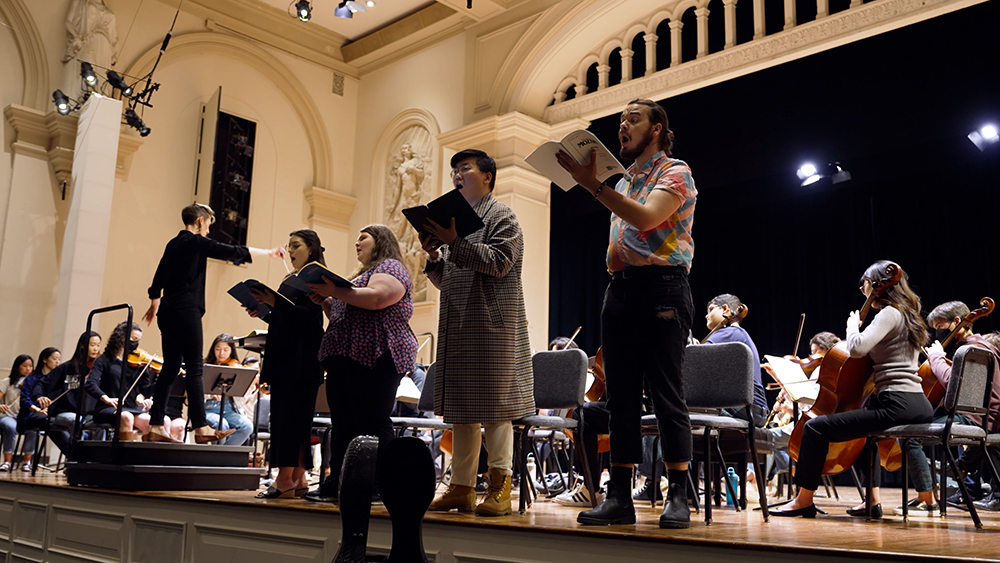Choral Conducting
The Choral Conducting program at the Peabody Conservatory, under the direction of Dr. Beth Willer, offers forward-thinking instruction and hands-on training in conducting technique and leadership of varied vocal and vocal-instrumental ensembles. Studying and performing repertoire from across centuries, students will develop the diverse set of skills necessary for the performance of historical and contemporary music, including frequent collaboration with living composers and creators.
Degrees offered include the Master of Music, Doctor of Musical Arts, and Graduate Performance Diploma, each requiring a residency of two years.
Graduate assistantships are available on a competitive basis, and all admitted DMA students receive full-tuition scholarships during the two-year residency period.
Each student is guaranteed exceptional podium time, including weekly seminars with a live conductors’ choir (six hours per week), work with chamber and symphony orchestras in a lab setting (three sessions per semester), and hands-on assistance and co-leadership of Peabody’s vocal ensembles in rehearsal and performance, including NEXT Ensemble, Peabody Camerata, and the Peabody Hopkins Conservatory Choir. In addition to developing skills on the podium, students will also coach one-on-a-part vocal chamber ensembles of undergraduate- and graduate-level voice majors. Additional opportunities may include leading readings and recordings of new works by student composers, preparation of ensembles for Peabody Opera Theatre, and paid internships with community and semi-professional ensembles in the Baltimore/D.C. metro region.
The choral repertoire sequence engages experts from across the field to lead students in the study of historical and contemporary repertoires, including attention to performance practice, a survey of a cappella and choral-orchestral masterworks spanning the 16c-20c, and emerging 21c repertoire. Repertoire studied will include works by underrepresented composers, and cross-genre compositions. Past guest faculty include Scott Metcalfe (Blue Heron Renaissance Ensemble), Edward Maclary (UMB Professor Emeritus), and Donald Nally (The Crossing).
Candidates for all degree programs are expected to have a working knowledge of vocal technique(s) and diction/IPA. Additionally, keyboard proficiency (open-score Bach chorale, 4 staves), and theory and ear-training skills (analysis and dictation) will be assessed as a part of the audition process.
